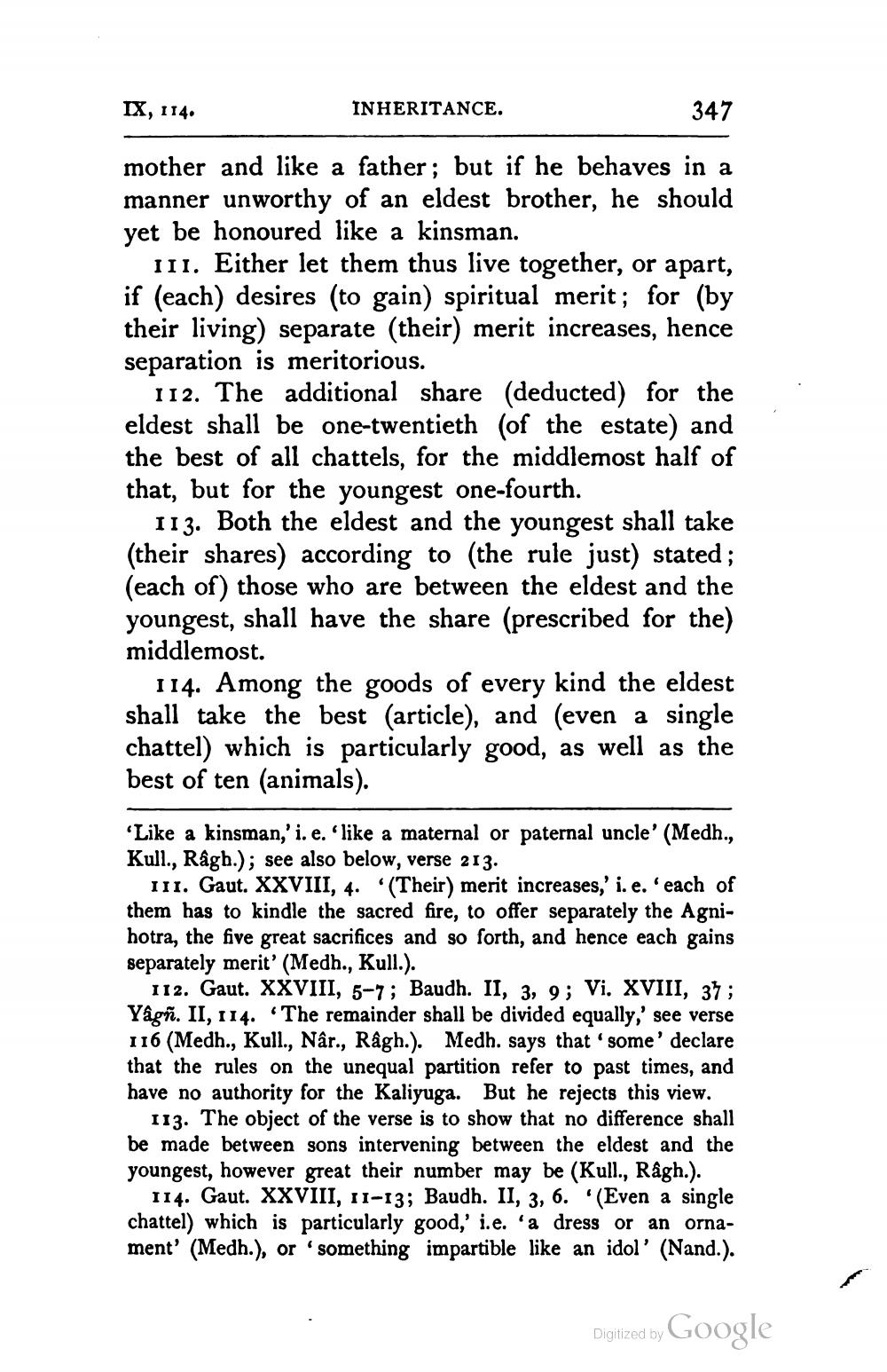________________
IX, 114.
INHERITANCE.
347
mother and like a father; but if he behaves in a manner unworthy of an eldest brother, he should yet be honoured like a kinsman.
111. Either let them thus live together, or apart, if (each) desires (to gain) spiritual merit; for (by their living) separate (their) merit increases, hence separation is meritorious.
112. The additional share (deducted) for the eldest shall be one-twentieth (of the estate) and the best of all chattels, for the middlemost half of that, but for the youngest one-fourth.
113. Both the eldest and the youngest shall take (their shares) according to the rule just) stated; (each of) those who are between the eldest and the youngest, shall have the share (prescribed for the) middlemost.
114. Among the goods of every kind the eldest shall take the best (article), and (even a single chattel) which is particularly good, as well as the best of ten (animals).
‘Like a kinsman,'i. e. ' like a maternal or paternal uncle' (Medh., Kull., Râgh.); see also below, verse 213.
111. Gaut. XXVIII, 4. (Their) merit increases,' i.e. each of them has to kindle the sacred fire, to offer separately the Agnihotra, the five great sacrifices and so forth, and hence each gains separately merit' (Medh., Kull.).
112. Gaut. XXVIII, 5–7; Baudh. II, 3, 9; Vi. XVIII, 37; Yågñ. II, 114. The remainder shall be divided equally,' see verse 116 (Medh., Kull., Nár., Râgh.). Medh. says that some' declare that the rules on the unequal partition refer to past times, and have no authority for the Kaliyuga. But he rejects this view.
113. The object of the verse is to show that no difference shall be made between sons intervening between the eldest and the youngest, however great their number may be (Kull., Ragh.).
114. Gaut. XXVIII, II-13; Baudh. II, 3, 6. (Even a single chattel) which is particularly good,' i.e. a dress or an ornament' (Medh.), or something impartible like an idol' (Nand.).
Digitized by Google




